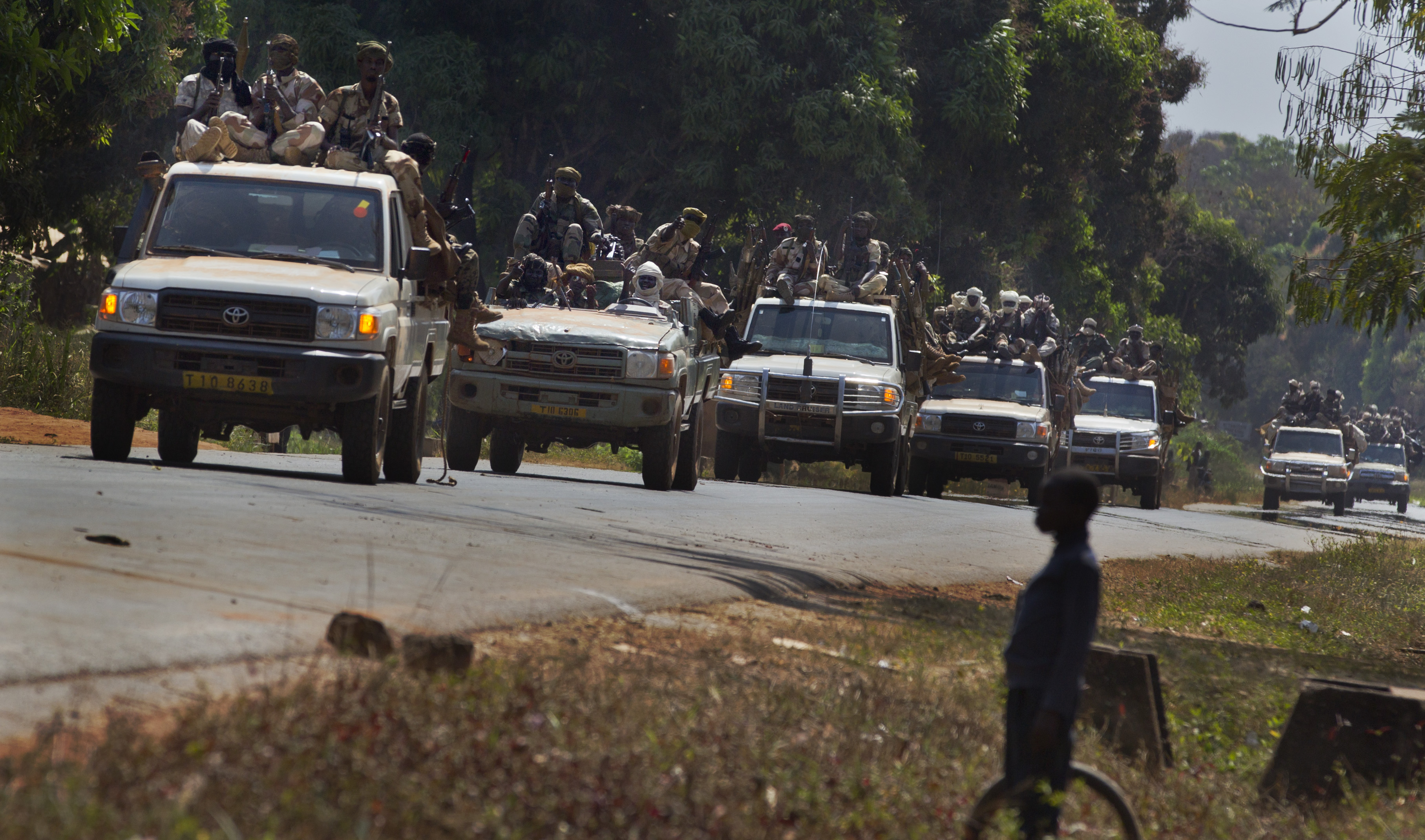
Editor's Note: This op-ed by Christopher Day originally appeared on The Daily Beast.
The rule of lawlessness in the Central African Republic, fueled with money from blood diamonds and poached ivory, has hardened religious identities, divided Muslim and Christian communities with murderous enmity, and allowed warlords to prevail in an atmosphere of impunity.
The state in CAR, which has never been strong, is now all but nonexistent. Make no mistake, even though the world is paying little attention, the crisis in the country demands a broad response to halt violence, establish order, and help hundreds of thousands of people at extreme risk.
The U.N. Security Council and the White House recently imposed sanctions on five key players in the conflict that is currently swallowing the country They target former presidents Francois Bozizé and Michel Djotodia, as well as strongmen from the anti-Balaka militia and Séléka rebels.
This is all well and good. Financial strangleholds are a step in the right direction because they address the political and economic dimensions of CAR’s crisis. But broadening the response to what is required and doing so competently means understanding the conflict’s broader dynamics and its distinct traits. Although the Séléka forces are largely Muslim, and the anti-Balaka largely Christian, the structural roots of the crisis and the forces that drive it are more complicated and have little to do with religion.
Those who are paying attention to CAR generally do so out of concern for the country’s violence. Hundreds of thousands of people have been driven from their homes, with many of them living in an airport-turned-wasteland beneath the wings of derelict jets.
What began as skirmishes between anti-Balaka militias and Séléka forces have expanded as fighters on all sides cast ever-widening nets around anyone guilty by association. Political manipulation of religious identity in CAR is nothing new, but it thrives in institutionally weak environments.
In this sense, CAR’s conflict follows broader patterns of political violence in Africa. Full-scale civil wars are giving way to fragmented armed groups with decentralized power bases in remote border regions. Fitting this profile, Boko Haram unleashes madness upon Nigeria’s northeastern states because the central government lacks control of its hinterlands and overcompensates with heavy-handed repression. The current instability in South Sudan is emblematic of the country’s chronic struggles to tame peripheral power centers, which have historically ethnic contours.
In CAR, the disintegration of the state has opened the way to privatized violence and the pursuit of economic agendas by entrepreneurial militia commanders and foreign mercenaries. Power has withered at the center and devolved to an archipelago of fiefdoms where warlords rule without the burdens of governing. These warlords want to control areas with alluvial diamonds and exploit opportunities for ivory poaching, cattle rustling, and bush-meat trafficking in the country’s periphery.
Continue reading this op-ed on The Daily Beast website.
Christopher Day is an Enough Project Non-Resident Senior Fellow and an Assistant Professor of Political Science at the College of Charleston.
Photo: A convoy of Chadian soldiers in the Central African Republic, 2013 (AP Photo/Ben Curtis).

